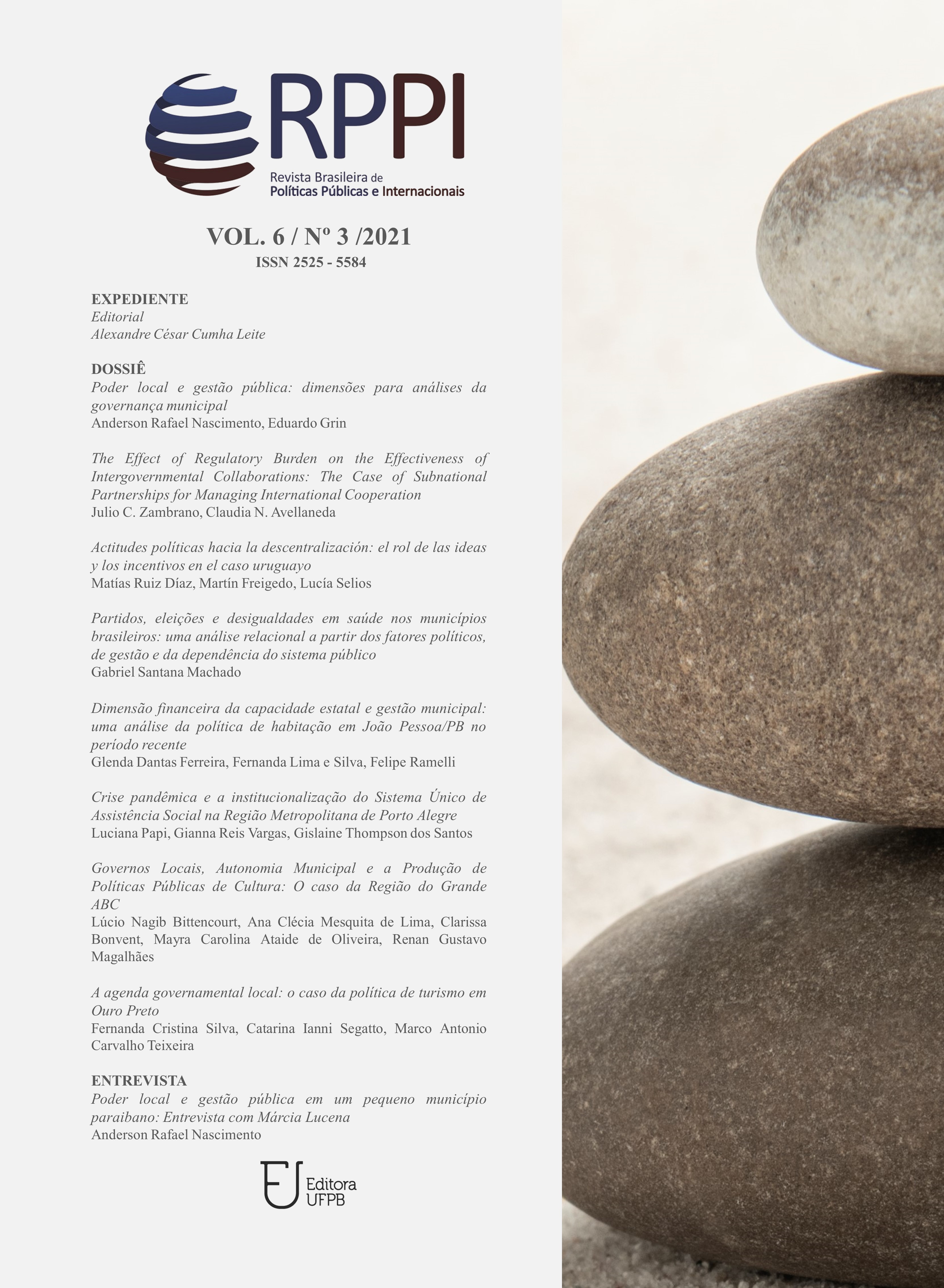The Effect of Regulatory Burden on the Effectiveness of Intergovernmental Collaborations: The Case of Subnational Partnerships for Managing International Cooperation
The Effect of Regulatory Burden on the Effectiveness of Intergovernmental Collaborations
DOI:
https://doi.org/10.22478/ufpb.2525-5584.2021v6n3.61124Palavras-chave:
regulatory burden, intergovernmental collaboration, international aid, governmental performanceResumo
With the goal of improving effectiveness and efficiency, worldwide cross-sector collaboration has become a central governance arrangement. Given this trend, research has focused on illustrating examples of collaborations over time and/or identifying collaboration’s drivers and effects. Yet, as cross-sector collaborations are more prevalent, governments have changed the rules for civil society organizations to become part of cross-sector collaboration across policy domains. While some regulations can be seen as a precondition to start a collaboration, over-regulated contexts can become a burden for participating organizations, thus hindering collaboration sustainability. However, little knowledge exists as to how regulatory changes influence performance effects of cross-sector collaboration. To fill this gap, this research focuses on all the 2007-2018 Ecuadorian subnational partnerships that manage international cooperation to test whether adoption of further regulations or regulatory burden targeting civil society organizations compromises the amount of international aid subnational governments secure. We also expect that the economic diversity in a jurisdiction amplifies the performance effects of regulatory burden. Findings suggest that regulatory burden negatively influenced governance capacity to obtain international aid, particularly in jurisdictions with high economic diversity.
Downloads
Arquivos adicionais
Publicado
Edição
Seção
Licença
Copyright (c) 2021 Julio C Zambrano, Claudia N. Avellaneda

Este trabalho está licenciado sob uma licença Creative Commons Attribution 4.0 International License. Autores que publicam nesta revista concordam com os seguintes termos:
- Autores mantém os direitos autorais e concedem à revista o direito de primeira publicação, com o trabalho simultaneamente licenciado sob a Licença Creative Commons Attribution que permite o compartilhamento do trabalho com reconhecimento da autoria e publicação inicial nesta revista.
- Autores têm autorização para assumir contratos adicionais separadamente, para distribuição não-exclusiva da versão do trabalho publicada nesta revista (ex.: publicar em repositório institucional ou como capítulo de livro), com reconhecimento de autoria e publicação inicial nesta revista.
- Autores têm permissão e são estimulados a publicar e distribuir seu trabalho online (ex.: em repositórios institucionais ou na sua página pessoal) a qualquer ponto antes ou durante o processo editorial, já que isso pode gerar alterações produtivas, bem como aumentar o impacto e a citação do trabalho publicado (Veja O Efeito do Acesso Livre).




_.jpg)






.png)


.jpg)
_.png)
